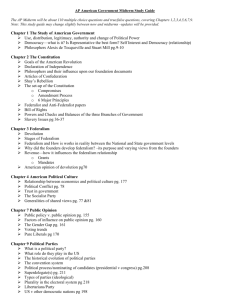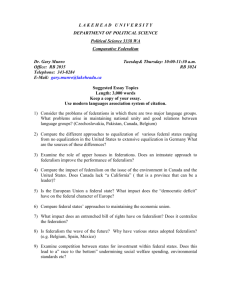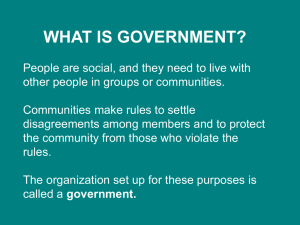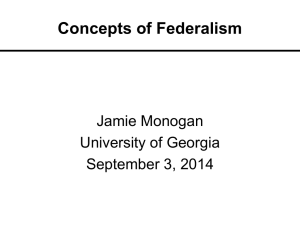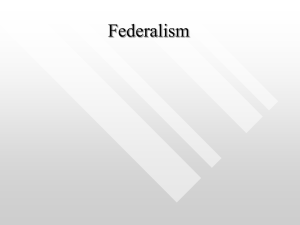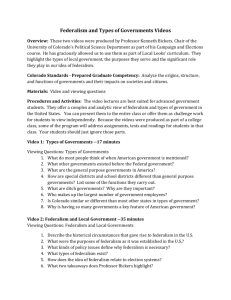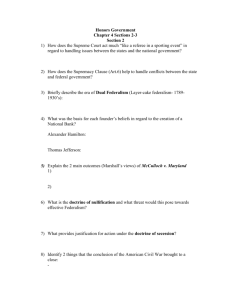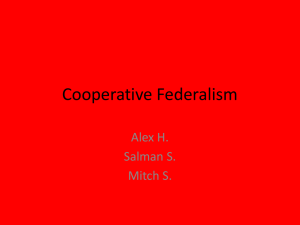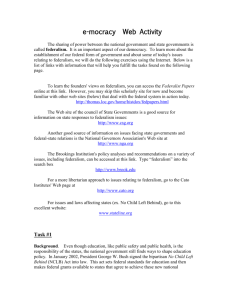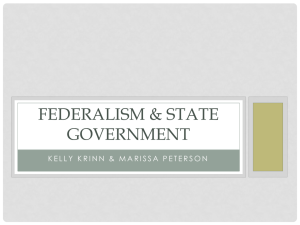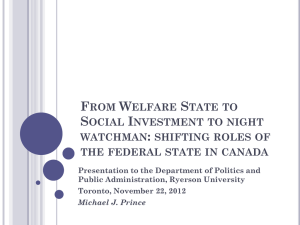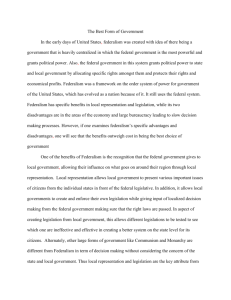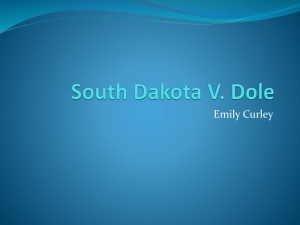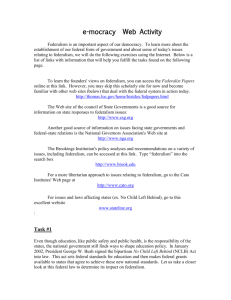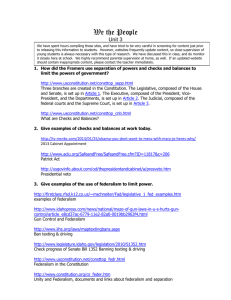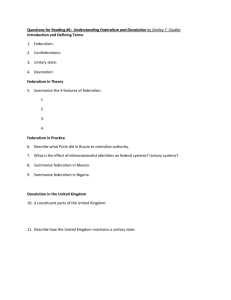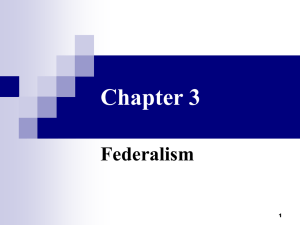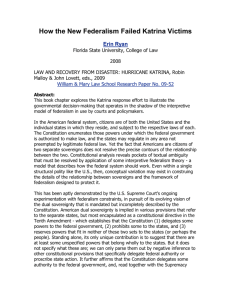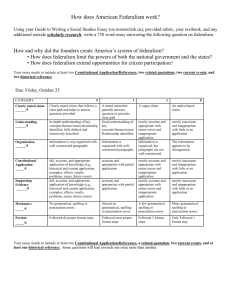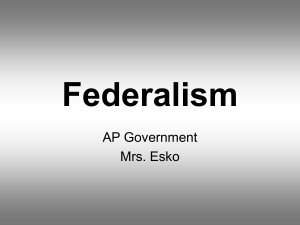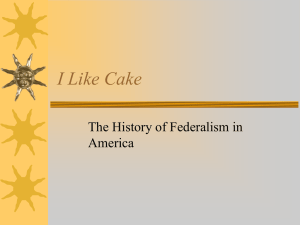Section 4 - Mineral Point Schools
advertisement
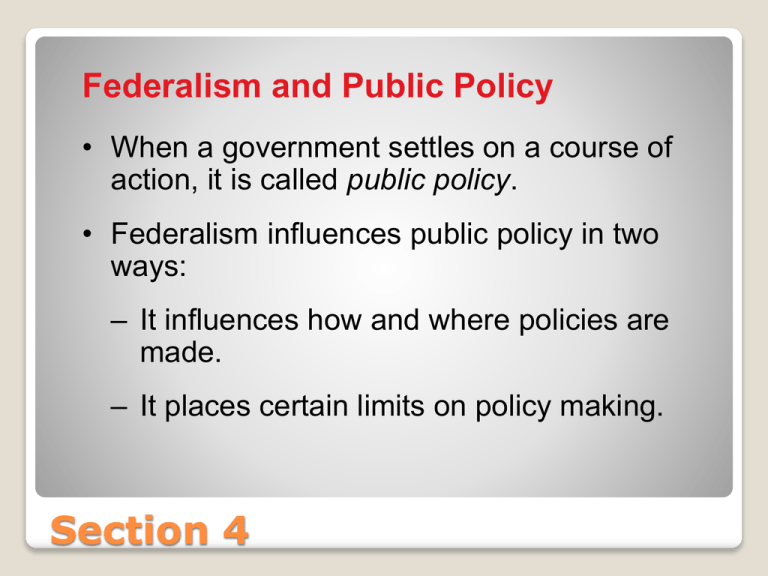
Federalism and Public Policy • When a government settles on a course of action, it is called public policy. • Federalism influences public policy in two ways: – It influences how and where policies are made. – It places certain limits on policy making. Section 4 Federalism and Public Policy (cont.) • A sunset law is a provision in a law that sets an automatic end date for the law. • Lawmakers are forced to review the need for continuing law beyond that date. • Sunshine laws prohibit public officials from holding closed meetings. Section 4 Federalism and Political Parties • Federalism makes it possible for different political parties to be victorious in state, local, and federal elections. • This lessens the risk of one party having a monopoly of political power. Section 4 Political Participation • Federalism provides for political participation of citizens by allowing them to: – run for local office, – lobby the state government, and – campaign for a candidate for national office. Section 4 Political Participation (cont.) • American federalism gives citizens many points of access to government leaders and increases their opportunities for influencing public policy. • Americans have the chance to vote often for governors, state lawmakers and many other state and local officials. • Americans may work with special-interest groups to influence national policies and state and local government agencies. Section 4 Political Participation (cont.) • Federalism provides an increased chance that one’s political participation will have some practical impact on policy. Section 4 Federalism’s Bureaucrats • The great increase in federal programs in the mid-1930s called for a large bureaucracy, or organization of government administrators, to carry out legislation. • The increase in federal programs has changed how state and federal officials relate to one another. Section 4 Differences Among the States • Federalism allows for real economic and political differences among the states because it permits each state considerable freedom in arranging its own internal affairs. • Because states create different economic and political environments, Americans can choose among a range of conditions under which they want to live. Section 4 The Direction of Federalism • Since the founding of the country, there has always been a debate about what the proper division of powers between the national government and the states should be. • The general tendency over the years has been in favor of the national government, but the power balance is constantly evolving in response to new issues. • Because of the relatively even distribution of party seats in recent Congresses, legislation has reflected both positions. Section 4

